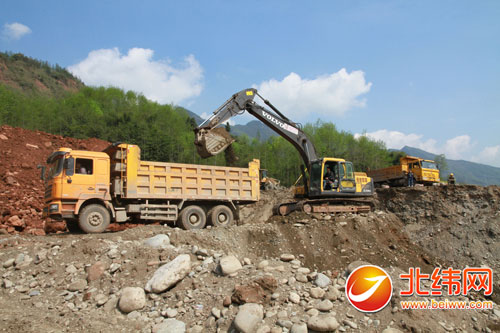More on Middle East
- The Day Most Important to Understanding the Israel-Palestine Conflict Is Here
- There Are Only Three Ways Out of Israel and Hamas’ War
- It’s Not Only Kent State That Today’s Campus-Protest Crackdowns Remind Me Of
- I Study Famine. The Conversation About Gaza Has Been Very Confused.
A U.S. defense official has told CBS News that it is “highly likely Iran caused” Thursday morning’s attacks on two oil tankers in the Gulf of Oman. (Update, June 13, 3 p.m.: Secretary of State Mike Pompeo has confirmed that the U.S. believes Iran was responsible.) According to the New York Times, early indications suggest that either mines or torpedoes were deployed against the two ships near the strategically vital Strait of Hormuz. One ship was owned by a Norwegian company, the other by a Japanese firm. The latter is notable, as the explosions came just as Japanese Prime Minister Shinzo Abe is in Iran on a landmark visit that included a meeting with Iran’s supreme leader, Ayatollah Ali Khamenei.
AdvertisementIt’s not clear what evidence the U.S. official based that assessment on, nor is its level of certainty known. (Iran’s state media says an Iranian rescue team picked up crew members from one of the ships, and Foreign Minister Mohammad Javad Zarif called the timing of the incident “suspicious” in a tweet.) Iranian officials have threatened in the past to close the Strait of Hormuz, through which about a fifth of the world’s oil supply flows, including in recent weeks in response to escalating sanctions pressure from the U.S.
There has also been a series of recent attacks against the region’s oil infrastructure that were either claimed by, or blamed on, Iranian proxies. In May, four tankers were bombed (much less severely than this morning) off the coast of the United Arab Emirates. The UAE—a staunch rival of Iran—said a “state actor” was likely responsible. U.S. investigators were more explicit in blaming Iran, which denied responsibility. Also in May, Yemen’s Iran-backed Houthi militia claimed responsibility for a series of drone attacks on Saudi oil facilities.
AdvertisementThe Houthis, who are fighting for control of Yemen against a U.S.-supported, Saudi-led coalition, also claimed a missile attack against a civilian airport in Saudi Arabia just this Wednesday. The Houthis have received both funding and weapons from Iran, but it’s less clear how much operational control Tehran has over them. They also have their own motives for attacking the Saudis.
Advertisement Advertisement AdvertisementBut if we stipulate that Iran is behind these recent attacks, and that they are a response to America’s “maximum pressure” campaign, the two things they have in common are that Tehran can maintain plausible deniability and that they’re probably not enough to provoke a full-scale military response from the United States.
AdvertisementThere is justifiable concern in Washington about war breaking out with Iran. National security adviser John Bolton is a longtime advocate of regime change in the Islamic Republic, President Donald Trump has at various points threatened the “official end” of Iran, and military plans have been drawn up at Bolton’s request that involve thousands of additional troops being sent to the Middle East. But for now, the administration seems to be softening its stance a bit, hoping that Iran’s leaders will either come to the negotiating table like Kim Jong-un did, or that economic pressure will cause the regime to collapse on its own. The additional troops that have been ordered to the region aren’t at a level that suggests imminent military action.
AdvertisementAttacks like this morning’s will likely prompt some stern warnings and bluster from Washington, but they aren’t likely to change the calculus fundamentally. That calculus would likely change if an attack directly harmed U.S. citizens or American interests, and if such an attack could be directly pinned on Iran. Wanting to avoid a disastrous direct military confrontation with the United States, Iran—which has long specialized in proxy “gray area” warfare—has stopped short of anything like that. Perhaps the closest it has come was a rocket attack in May against Baghdad’s green zone, near the U.S. embassy. The attack came shortly after the U.S. had partially evacuated diplomatic facilities in Iraq over the perceived threat from the Iran-backed Shiite militias operating in the country, but those militias quickly distanced themselves from the strike.
These violent incidents are likely to continue, without Iran ever attacking the U.S. directly or doing anything that would prompt the U.S. to attack it directly. What this means is that U.S.-allied countries in the region, some of which have long urged the U.S. to take a harder line against Iran, are likely to be the ones who most feel the backlash from that harder line.
Tweet Share Share Comment








